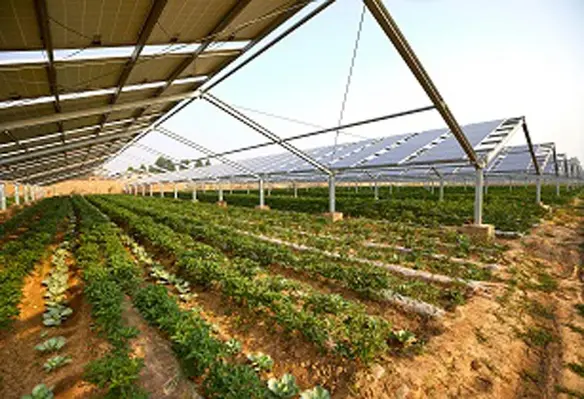While critical global issues such as climate governance, energy security, and sustainable agriculture were highlighted at COP28 last year, Chinas practices in photovoltaic agriculture stood out as a promising solution to climate change challenges
During COP28, the World Resources Institute released a documentary short film 'The Sun for Growth', showcasing China's practices and experiences in the field of agricultural photovoltaics to global participants. According to Dr Chen Jing, a postdoctoral researcher at Tsinghua University's School of Social Sciences in the Energy Transition and Social Development Research Centre, photovoltaic agriculture in China ingeniously blends traditional crop farming, aquaculture, and fisheries by optimising the use of existing spaces for photovoltaic installations, thereby increasing energy efficiency.
In certain regions of Inner Mongolia, a northern province in China, photovoltaics has been integrated with livestock forming and tourism. This integration not only improves the efficiency of animal husbandry, but also stimulates the development of local tourism, leading to the creation of a novel integrated model of 'Photovoltaic-Pastoral Tourism', which has effectively promoted local economic development.
Laura Van Wie McGrory, global engagement lead for Scaling Up Solar at the World Resources Institute, acknowledged the strides that China has made in implementing photovoltaic agriculture as well as the importance of sharing these insights with countries in Southeast Asia and Africa. Moreover, she also stressed the importance of tailoring agrivoltaic strategies to the specific characteristics and needs of different countries and regions, adopting innovative and diversified solutions and focusing on the safety and equity of projects, under the premise of maintaining regular agricultural production.
For more information, visit: https://wri.org.cn/en




